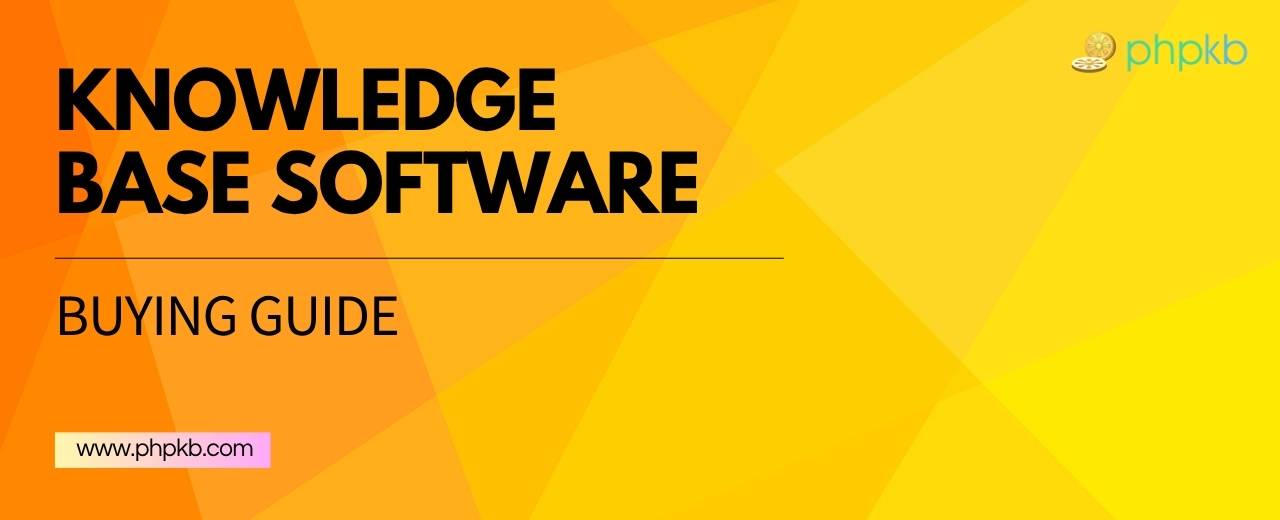
If you’ve landed here, you’re likely searching for the best knowledge base solution; whether it’s to help your customers, organize internal procedures, or empower your support team to grow. With so many options available, finding the right tool can seem daunting.

Choosing the right knowledge base software can be a pivotal decision for your organization; whether you're aiming to streamline customer support, document internal procedures, or improve your team's productivity. With the number of tools on the market continuing to grow, selecting the right platform can quickly become a complex and time-consuming task.
This guide breaks down the essential features and criteria you should consider when evaluating knowledge base software in 2025. By focusing on these capabilities, you can make a more confident and informed decision that supports both your short-term needs and long-term growth.
In 2025, basic keyword search is no longer sufficient. Modern users—both customers and employees—expect a search experience that mimics Google in accuracy, speed, and intelligence.
Look for a knowledge base platform that uses AI-driven natural language processing (NLP) to interpret user intent, auto-correct typos, and provide smart suggestions based on query context. Some advanced systems also learn over time, improving results based on user behavior and feedback.
Why it matters: A powerful search system ensures users find what they’re looking for quickly, reducing frustration, increasing self-service adoption, and ultimately decreasing support ticket volume.
The quality of your documentation depends heavily on how easy it is to create and maintain. Your team—whether it’s support agents, technical writers, or subject matter experts—should be able to draft, edit, and publish content effortlessly.
Key capabilities to look for include:
Why it matters: If the authoring experience is clunky, your team will avoid it. A smooth writing and collaboration workflow encourages ongoing contributions, reduces documentation bottlenecks, and helps keep your content fresh and accurate.
As your knowledge base expands, managing its structure becomes increasingly critical. The platform should offer tools to categorize, tag, and organize content in a way that’s logical for both end users and internal teams.
Look for:
Why it matters: An organized knowledge base not only improves navigation and discoverability but also ensures your documentation scales effectively with your business.
Your knowledge base should be more than functional—it should also reflect your organization’s identity. Customization features allow you to align the look and feel of your help center with your company’s branding.
Prioritize platforms that support:
Why it matters: A branded experience builds trust with users and reinforces professionalism. It should feel like a seamless part of your product or website—not an external tool.
Without visibility into how your knowledge base is performing, improvement is guesswork. The right platform will provide actionable insights through detailed analytics.
Key metrics should include:
Why it matters: Analytics help you continuously refine your content strategy, close knowledge gaps, and optimize articles based on real user needs.
A knowledge base shouldn’t operate in a silo. It should integrate seamlessly with the tools your team already uses—like helpdesk systems, live chat platforms, CRMs, and content management systems.
Popular integrations to consider:
Why it matters: Integrations reduce duplicate work, increase efficiency, and allow you to centralize knowledge sharing across platforms and departments.
Security should be non-negotiable, especially if your knowledge base stores sensitive information or internal-only content. Likewise, the platform should scale effortlessly as your organization grows.
Ensure your platform supports:
Why it matters: As your business grows and your data becomes more valuable, choosing a secure and scalable solution is essential for long-term success and peace of mind.
Before locking in any knowledge base software, run a trial or pilot with a small team. Evaluate:
Real-world testing helps you spot usability gaps, understand limitations, and choose the platform that best fits your workflow.
If you’re looking for a secure, full-featured, and highly customizable knowledge base solution, consider evaluating PHPKB Knowledge Base Software. It offers:
Whether you're a startup building your first help center or a large enterprise centralizing internal documentation, PHPKB is built to scale with your needs.
Choosing the right knowledge base software in 2025 isn’t just about ticking boxes, it’s about empowering your team, improving customer experience, and building a culture of knowledge sharing. Focus on usability, scalability, and intelligence when making your selection. And remember, the best tool is one your team actually uses consistently and confidently.
Start your evaluation today, and don’t forget to test PHPKB in your shortlist.
Article ID: 415
Created: June 12, 2025
Last Updated: June 12, 2025
Author: Ajay Chadha [support@phpkb.com]
Online URL: https://www.phpkb.com/kb/article/knowledge-base-software-buying-guide-what-to-look-for-415.html